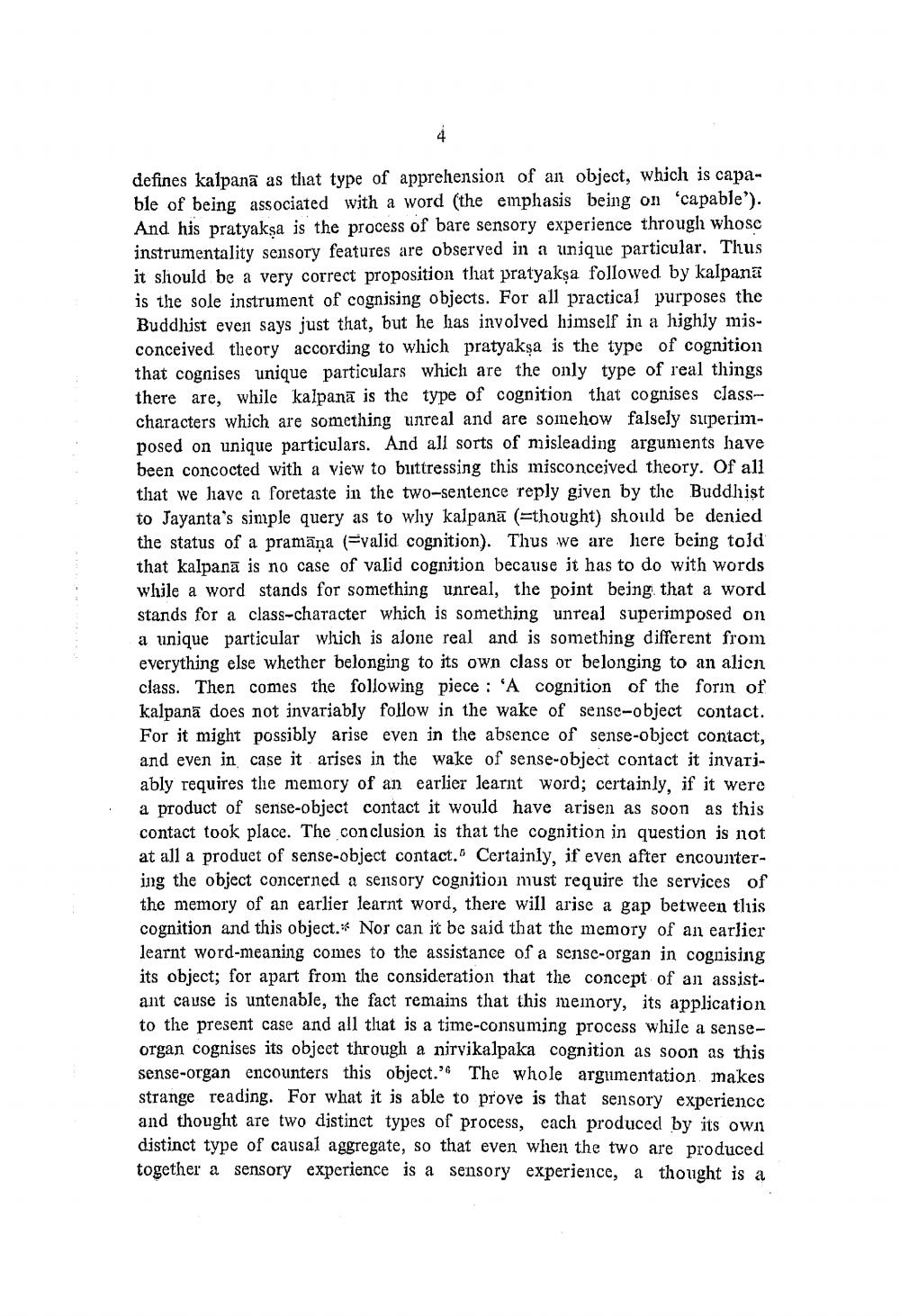________________
defines kalpanā as that type of apprehension of an object, which is capable of being associated with a word (the emphasis being on 'capable'). And his pratyaksa is the process of bare sensory experience through whose instrumentality sensory features are observed in a unique particular. Thus it sliould be a very correct proposition that pratyaksa followed by kalpana is the sole instrument of cognising objects. For all practical purposes the Buddhist even says just that, but he has involved himself in a highly misconceived theory according to which pratyaksa is the type of cognition that cognises unique particulars which are the only type of real things there are, while kalpana is the type of cognition that cognises classcharacters which are something unreal and are somehow falsely superimposed on unique particulars. And all sorts of misleading arguments have been concocted with a view to buttressing this misconceived theory. Of all that we have a foretaste in the two-sentence reply given by the Buddhist to Jayanta's simple query as to why kalpanā (=thought) should be denied the status of a pramāņa (=valid cognition). Thus we are here being told that kalpana is no case of valid cognition because it has to do with words while a word stands for something unreal, the point being that a word stands for a class-character which is something unreal superimposed on a unique particular which is alone real and is something different from everything else whether belonging to its own class or belonging to an alien class. Then comes the following piece : 'A cognition of the forin of kalpanā does not invariably follow in the wake of sense-object contact. For it might possibly arise even in the absence of sense-object contact, and even in case it arises in the wake of sense-object contact it invariably requires the memory of an earlier learnt word; certainly, if it were a product of sense-object contact it would have arisen as soon as this contact took place. The conclusion is that the cognition in question is not at all a produet of sense-object contact. Certainly, if even after encountering the object concerned a sensory cognition must require the services of the memory of an earlier learnt word, there will arise a gap between this cognition and this object.* Nor can it be said that the memory of an earlier learnt word-meaning comes to the assistance of a sense-organ in cognising its object; for apart from the consideration that the concept of an assistant cause is untenable, the fact remains that this meinory, its application to the present case and all tliat is a time-consuming process while a senseorgan cognises its objeet through a nirvikalpaka cognition as soon as this sense-organ encounters this object.' The whole argumentation makes strange reading. For what it is able to prove is that sensory experience and thought are two distinct types of process, cach produced by its own distinct type of causal aggregate, so that even when the two are produced together a sensory experience is a sensory experience, a thought is a




